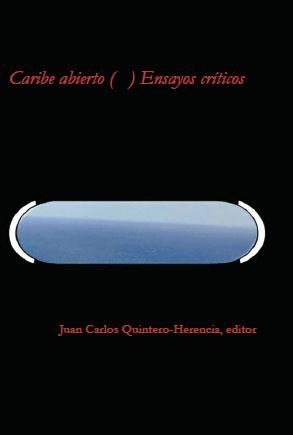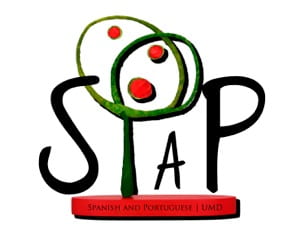Las dagas de Borges
Las dagas de Borges
Lecciones de los maestros Borges y Cortázar en el aula
Dos de los más importantes narradores latinoamericanos fueron también dos profesores notables. Las transcripciones de sus clases, disponibles actualmente en libro, permiten corroborar que la enseñanza de la literatura puede ser también una “forma de la felicidad”.
New Book: Juan Carlos Quintero-Herencia’s “Caribe abierto ( ) Ensayos críticos” | Repeating Islands

Caribe abierto ( ) Ensayos críticos is a collection of critical essays published by the International Institute of Ibero-American Literature [Instituto Internacional de Literatura Iberoamericana], edited by Juan Carlos Quintero-Herencia.Description: In the words of the editor, this critical anthology “spoils the disciplinary sharpness or moral correctness of many well-pondered narratives barely dedicated to presenting an inventory of the identity particularities of the islands.” What guides the exploration of a possible Caribbean space here is not the “mainstream tendency” but rather unique, anomalous, and impossible subjectivities, as well as abject, unmotivated, and unbelievable actions. The works’ critical register spans from the health deliria of Dr. Ashley in San Juan, Puerto Rico, to the counter-Dantesque orgies of José Lezama Lima.
The contributors are Lena Burgos-Lafuente, Ana Serra, Ivette Rodríguez-Santana, Horacio Legrás, Marilyn Grace Miller, Néstor E. Rodríguez, Francisco Morán, Eduardo González, Laura Maccioni, and Juan Carlos Quintero-Herencia.
via New Book: Juan Carlos Quintero-Herencia’s “Caribe abierto” | Repeating Islands.
Luis Rafael Sánchez: Ganador del Premio Internacional Pedro Henríquez Ureña
PREMIO INTERNACIONAL PEDRO HENRÍQUEZ UREÑA DE LITERATURA A: LUIS RAFAEL SÁNCHEZ
El escritor puertorriqueño Luis Rafael Sánchez ha sido galardonado, por unanimidad, con el Premio Internacional Pedro Henríquez Ureña de Literatura en su primera edición. Instituido por el Gobierno Dominicano, a través de su Ministerio de Cultura, como homenaje permanente a la figura egregia de Pedro Henríquez Ureña, el premio galardona la productividad literaria, la crítica y la creación de pensamiento en la obra de toda una vida.
El premio, que consiste en un premio en metálico de veinticinco mil dólares-(U.S.$25,000), un diploma de acreditación y una escultura creada por un artista dominicano, le será entregado a Luis Rafael Sánchez el próximo 29 de abril por el Presidente de la República Dominicana, Doctor Danilo Medina, dentro del marco de la Feria Internacional del Libro de Santo Domingo. El jurado lo integraron los críticos Eva Guerrero Guerrero, de la Universidad de Salamanca; Néstor Rodriguez de la Universidad de Toronto; Miguel Mena de la Universidad Libre de Berlin y Ramón Antonio Victoriano de la Universidad de Mississauga, en Canadá.
Sánchez es autor del libro de cuentos En cuerpo de camisa y de las novelas La guaracha del Macho Camacho, La importancia de llamarse Daniel Santos e Indiscreciones de un perro gringo. También de los libros de artículos y ensayos La guagua aérea, No llores por nosotros, Puerto Rico, El himno de la vida, Devórame otra vez y Abecé indócil. Además de su incesante labor periodística ha estrenado varias obras teatrales, entre ellas La pasión según Antígona Pérez, Quíntuples y La hiel nuestra de cada día. Su obra se ha traducido a los idiomas inglés, francés, alemán, portugués, holandés, islandés, húngaro, rumano y griego.
The Pain of Reading – Luis Negron at the NYTimes.com
The pain of reading by Luis Negrón
Santurce, P.R.
THE fights between my parents were frequent, and my three siblings and I were used to their separations. Papi would gather his things or Mami would throw them into the street, cursing the day she met him. But this time we were the ones who left. Papi had gotten involved with the woman next door, and for Mami this was the last straw. She swore never to go back with him. And she didn’t.
We moved into my grandparents’ house in Guayama and from there, in quick succession, to my aunt’s, my godmother’s, my sister’s godmother’s, my neighbors’ and, on occasion, even strangers’. We lived like nomads, pushing on whenever our hosts’ hospitality had run dry. We hated living in those houses. Mami had become a tyrant: we couldn’t talk at night, not even in a whisper, and if anyone offered us an extra helping of food we had to say no. If we did something bad, she’d lock us in the bathroom and beat us in a blind rage — and we had no right to cry.
Call for Papers: Puerto Rican Culture and (Post)Work
The Puerto Rican literature and culture discussion group of the MLA 2009 Convention will consider proposals for its session on:
Puerto Rican Culture and (Post)Work: Symbolic and social value of (im)productivity in this transnational community: cultural activism; commodification of artistic labor; local/global socioeconomic dynamics.
Submit 1-page abstracts to guillermo.irizarry@uconn, by 1 March 2009.


